 |
| The Gita |
The Gita :
Bhagavad-Gita or The Song of the divine one is a celebrated episode in the epic, Mahabharata.It is in the form of a dialogue between Dhritarasthra, the blind king of Hastinapura, and Sanjaya who describes the happening on the battlefield to the king. Krishna is the principal speaker, who exhorts Arjuna to fight.
Many scholars hold that it is a later interpolation in the Mahabharata, especially because there are references to the Six Darshanas or philosophies, propounded in the period- 5th Century B.C. to 2nd century A.D.
The Gita draws much from the Upanishads and is often described as the quintessence of the Upanishads. The positive approach of the Gita has made it dynamic but the attempts at defining the indefinable have imposed certain limitations too and hence the apparent contradictions in the Gita.
English Translations of Main Slokas in The Gita:

1) Whenever There is a decay of rightousness , O Bharata, and rise of the unrighteousness, then I manifest Myself. (IV-7)

2) For The protection of The good, for the destruction of the wicked and for the establishment of righteousness, I am born in every age. (IV-8)

3) Just as in This body the embodied (soul) passes into childhood, youth and old age, so also does he pass into another body ; the firm man does not grieve at it.
(II - 13)
4) Just as a man casts off his worn out clothes and puts on new ones, so also the embodied (Soul) self casts off its worn out bodies and enters others which are new.
(II - 22)

5) Weapons Cleave It not, fire burns it not, water moistens it not, wind dries it not. (II - 23)

6) Having made pleasure and pain, gain and loss, Victory and defeat, the same, engage in battle for the sake of battle; thus you shall not incur sin.
(II - 38).

7) The right is to work only, but never to its fruits; let not the fruit of action ne thy motive, nor let thy attachment be to inaction. (II - 47)
Translations reproduced from The Holy Geeta by Swami Chinmayananda.
Gita in Illustrated Comics Form:














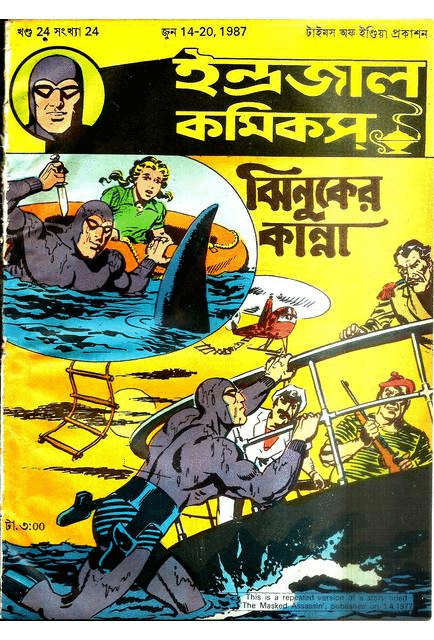










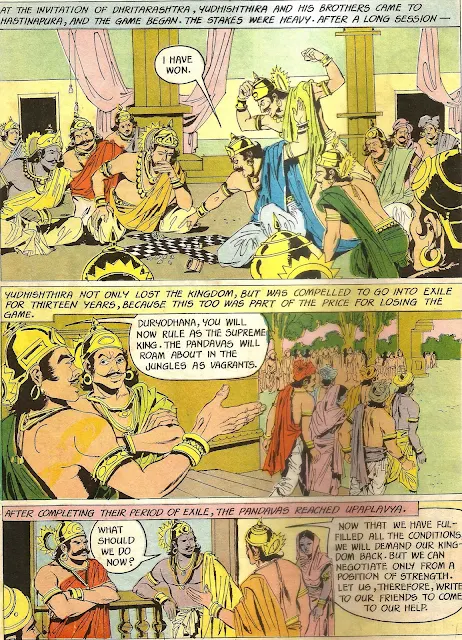




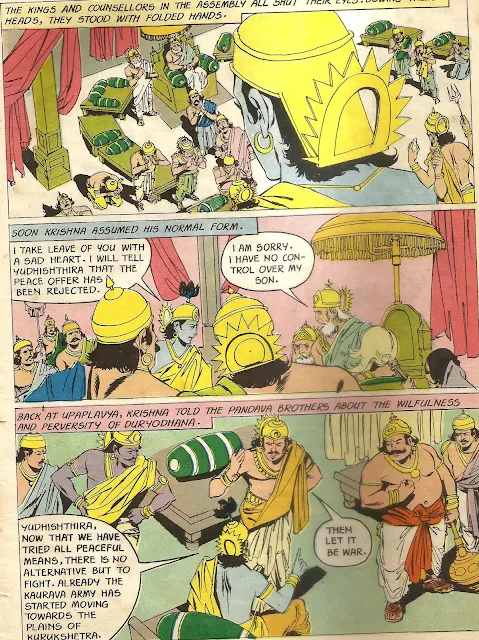
















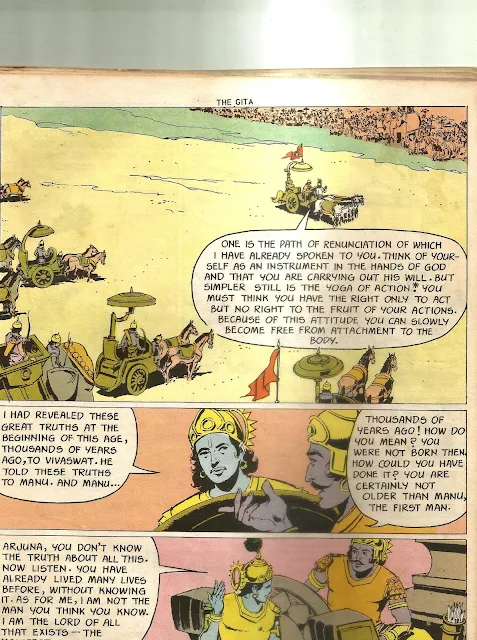


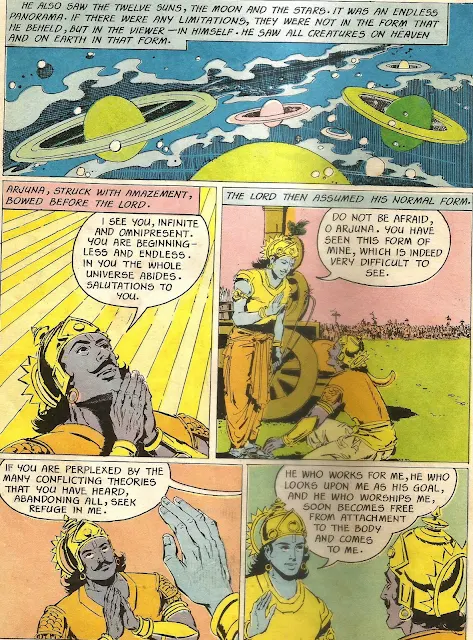




 Online Movies
Online Movies
No comments:
Post a Comment